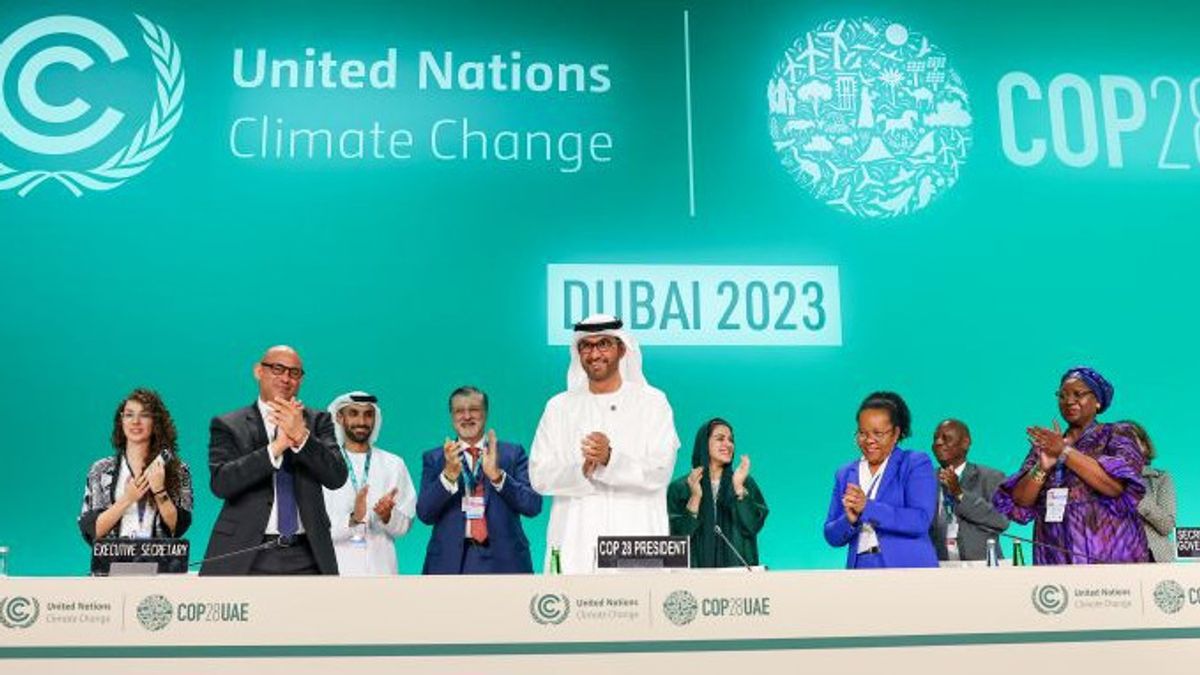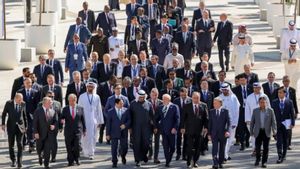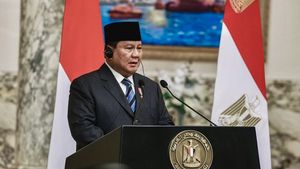JAKARTA - The United Nations (UN) has held climate change conferences 27 times, commonly called COP or Conference of The Parties, before COP28 which is being held in Dubai, United Arab Emirates, from November 30 to December 12.
Indeed, there are many breakthroughs, but they often do not materialize in the field. It was only when the world became increasingly unfriendly to life that made many people loudly voice their efforts to fight climate change alone, COP was seen as becoming increasingly important.
The highest decision-making in the United Nations Framework Convention for Climate Change (UNFCCC) signed at the Earth Summit in Brazil in 1992 became a forum for various countries and individuals in negotiating the fate of Earth.
COP28 is becoming much more important after this year Earth recorded the hottest temperature of all time, triggering increasingly devastating fires, floods and storms around the world.
The United Nations itself has warned that the Earth will experience warming up to 2.5-2.5-2.5 degrees Celsius. This figure exceeds the Paris Agreement target at 1.5 degrees Celsius above the level before the industrial revolution era, or commonly written 'pre-industrial level' alone.
The biggest concern is that emissions that are almost uncontrollable, when ironically the world is keen to voice zero emission targets.
SEE ALSO:
Climate activists such as Greta Thunberg often criticize countries and business circles who according to him are more trying to show their commitment to climate change, but actually don't take steps against climate change.
Thunberg and environmental activists call the situation "greenwashing", or washing environmental hands as if they are committed to the environment but actually do not answer environmental issues.
Not surprisingly, COP is often criticized as a pleasant arena that repeats old commitments, with the aim of raising a mere eco-friendly image. This forum was criticized for being an opportunity to convey ideals about what humans should do, but in fact, it didn't change the situation of planet Earth for the better.
Their criticism based on COP's commitment to fossil energy.
Already 27 COPs have been held by the United Nations and that many people have also communicated in each conference, never really offending "sol fuel."
In fact, the United Nations itself revealed that 75 percent of global greenhouse gas emissions and 90 percent of carbon dioxide emissions come from fossil fuels, namely coal, petroleum and gas.
The greenhouse gas emission, which is produced by fossil fuels, makes the sun's heat trapped in the atmosphere so that the Earth gets hotter to live in. Natural disasters also become much more powerful and appear irregular.
fossil fuels
Can COP28 make countries dare to express their dependence on fossil fuels to be stopped?
So far, only COP26 in Glasgow has explicitly conveyed an invitation to stay away from fossil fuels, and it is also limited to "coal".
Now, in COP28, there is greater pressure that wants this forum to focus on highlighting all fossil fuels.
The problem is, not only fossil fuel producers are disturbed by that focus, but also developing countries that depend on fossil fuels.
Developed countries do not want to leave their dependence on fossil fuels. They do not have sufficient funds and alternative energy other than fossils. Moreover, areas such as Africa only contribute 4 percent of the total world's emissions.
That's why developing countries are of the view that those who play a role in causing climate change are rich countries, as they become the largest producers and connoisseurs of fossil energy.
For developing countries, large producing countries and fossil energy users must set a leadership example in fighting climate change.
The world's largest emission-producing major countries must also provide compensation to developing countries that are degraded by the environment which worsens due to the actions of large countries.
In this framework, including COP28, there must be talks about compensation funds due to emissions that trigger climate change.
This matter has actually been agreed upon in COP27. Here, rich countries must pay compensation to poor countries affected by climate change.
However, rich countries are reluctant to bear responsibility for the emissions they make.
In 2009, developed countries pledged to provide 100 billion US dollars (IDR 1,548 trillion) per year to developing countries by 2020, to help those countries reduce emissions and prepare for climate change.
The target was missed in 2020, although according to a number of circles, it may have been achieved by 2022.
From this perspective, COP28 must help establish the next step in order to realize the US$100 billion commitment per year.
The English, Chinese, Japanese, Arabic, and French versions are automatically generated by the AI. So there may still be inaccuracies in translating, please always see Indonesian as our main language. (system supported by DigitalSiber.id)
















